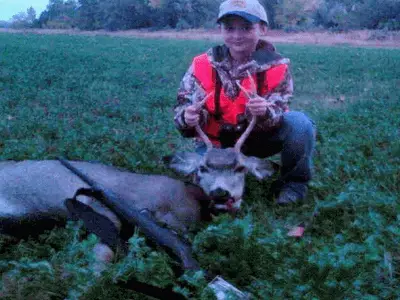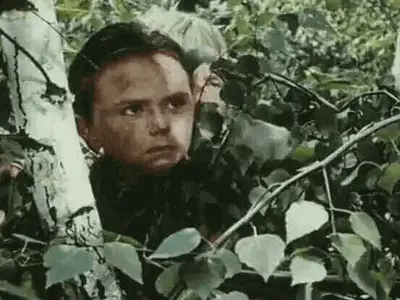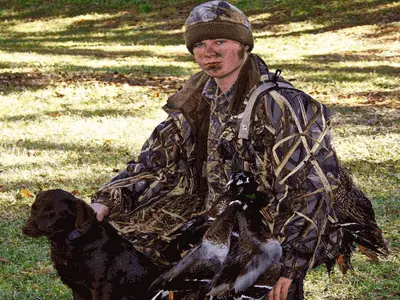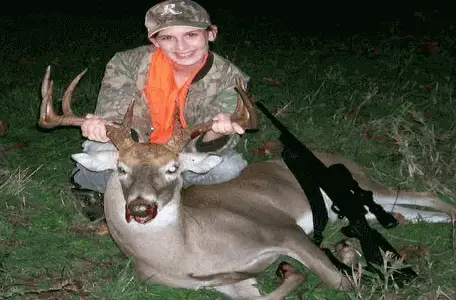Disclosure: We may earn commissions if you purchase products after clicking on a link from our site.
Attention all parents and outdoor enthusiasts! Are you curious about how to introduce your kids to hunting, but unsure where to begin? Look no further! Discover the perfect blend of adventure, education, and family bonding as you embark on this exciting journey together.
In this comprehensive guide, we’ll delve into practical tips and essential safety measures to ensure a rewarding and memorable experience for both you and your children. Get ready to create cherished memories and instill valuable life skills that will last a lifetime. Join us as we unlock the wonders of the great outdoors and introduce your kids to the timeless tradition of hunting.

Table of Contents
How To Introduce Your Kids To Hunting
1. Develop Interest In The Outdoors
Introducing children to the great outdoors and nurturing their interest in hunting begins with fostering a genuine appreciation for nature. Encouraging outdoor activities like hiking, camping, or simply exploring local parks can spark curiosity and ignite a sense of wonder in young minds.
Engage them in nature-based games, birdwatching, or identifying different plants and animals to make learning fun and interactive. As they become more familiar with their surroundings, gradually introduce them to the concept of hunting, emphasizing the importance of responsible stewardship and ethical practices. By instilling a deep respect for wildlife and the environment from an early age, you lay the foundation for a lifelong connection to the outdoors and a passion for hunting rooted in conservation values.
Take them outdoors regularly where you explore the landscape, the creeks, hills, swamps, streams, ponds, marshes, meadows, etc. Let them learn to appreciate nature. Let them watch the birds, insects, deer, squirrels, rabbits, frogs, and any other animals you see outdoors. Take them out on fishing trips. Subtly, explain how it is our responsibility to maintain and preserve nature as well as benefit from all it has to offer.
2. Make Them A Junior Hunting Buddy
If your kid has developed some interest in the outdoors and likes going out with you, then you can take them along on small hunting and fishing trips. Make them an apprentice. Take them along when you go squirrel hunting. Let them watch you and partake in the process.
Explain how to hunt and what it requires to be successful. let them learn not only by what you tell them but also by observation. If you hit a squirrel, let them locate and retrieve it. The best squirrel hunting tips were discussed in this article you can read from this link,
3. Safety
Explain how safety is the most important aspect of safety. Explain why it is important to wear safety clothing and gear. Explain how it is your responsibility to make sure other hunters are in danger of your actions. Don’t only explain but show it in your actions and explain the safety measures you take and require them to adhere to.
Safety is paramount when introducing children to the world of hunting. Start by teaching them the fundamental principles of firearm safety, emphasizing the importance of treating every firearm as if it were loaded and never pointing it at anything they do not intend to shoot. Ensure they understand the proper handling and operation of firearms, including how to safely load, unload, and carry them.
Additionally, instill in them the importance of wearing appropriate safety gear, such as ear and eye protection, and teach them how to identify and avoid potential hazards in the field. Emphasize the need for clear communication and teamwork when hunting with others, and establish strict guidelines for behavior in the field to prevent accidents. By prioritizing safety above all else, you can instill in your children a lifelong commitment to responsible hunting practices.

4. Make It Fun & Exciting
When introducing children to hunting, it’s crucial to make the experience fun and exciting to keep them engaged and eager to learn. Start by choosing hunting locations and times that offer the best chances of success, increasing the likelihood of them experiencing the thrill of a successful hunt.
Incorporate activities that appeal to their interests and capture their imagination, such as tracking wildlife, observing nature, and learning about animal behavior. Make sure to celebrate even small victories, such as spotting wildlife or identifying animal tracks, to boost their confidence and enthusiasm.
Additionally, involve them in the planning process by allowing them to choose hunting gear, snacks, and other essentials, empowering them to take ownership of their outdoor adventures. By creating a positive and enjoyable atmosphere, you can cultivate a lifelong passion for hunting in your children.
5. Let Them Participate
When introducing children to the world of hunting, it’s essential to let them actively participate in the experience. Allowing kids to take part in various aspects of the hunt, such as setting up blinds, tracking game, or even taking a shot under supervision, fosters a sense of responsibility and ownership.
By involving them in the process, kids gain valuable skills, develop confidence, and deepen their connection to nature. Moreover, participating in hunting activities together creates lasting memories and strengthens family bonds.
Encouraging children to be active participants not only teaches them about wildlife conservation and ethical hunting practices but also instills a lifelong appreciation for the outdoors and the importance of responsible stewardship.
6. Teach Hunting Discipline
This is a long-term process. You will start early and gradually teach your child how to be disciplined when hunting. Explain how hunting involves sitting quietly and still for a long time as you wait for your target. The child may understand this but for that age group, your kid will still become impatient when you have sat for some time without talking or moving any arm or leg.
This is the reason why you don’t take your child on major hunting trips. Go on small hunting trips like a squirrel, bird, or rabbit hunt. This will not require you to sit still for many hours that the child just can’t commit to. The best rabbit hunting tips were discussed in this article for your reading.
Introducing children to hunting involves instilling a strong sense of discipline from the outset. Teaching kids hunting discipline encompasses various aspects, including firearm safety, ethical behavior, and respect for wildlife. From an early age, kids should learn the importance of handling firearms responsibly, understanding firearm safety rules, and practicing proper shooting techniques under adult supervision.
Additionally, instilling ethical behavior involves teaching children to follow hunting regulations, respect property boundaries, and only take shots at ethical and humane targets. Teaching hunting discipline also entails fostering an appreciation for the environment and wildlife, emphasizing the importance of conservation and sustainable hunting practices.
By instilling these values and principles, children develop into responsible hunters who prioritize safety, ethical conduct, and conservation efforts in their hunting pursuits.
7. Be Patient
When introducing children to hunting, it’s crucial to be patient and understanding throughout the process. Patience is key as kids may not grasp every aspect of hunting right away, and they may require repeated explanations and demonstrations to fully understand concepts like firearm safety, animal behavior, and hunting techniques.
It’s important to maintain a calm and supportive demeanor, encouraging children to ask questions and express their thoughts and concerns openly. Being patient allows kids to learn at their own pace, building confidence and competence gradually as they gain experience in the field.
Moreover, patience fosters a positive learning environment, strengthening the bond between parent and child as they share memorable experiences and overcome challenges together while embarking on their hunting journey.

8. Answer Their Questions
When introducing kids to hunting, it’s natural for them to have a myriad of questions about the activity. From the practical aspects of firearm safety and hunting techniques to the ethical considerations of harvesting animals, children may express curiosity and seek clarification on various topics.
As parents or mentors, it’s essential to address these questions with patience, honesty, and age-appropriate explanations. Encouraging open dialogue allows kids to better understand the intricacies of hunting while fostering a sense of responsibility and respect for nature.
By taking the time to answer their questions thoughtfully and thoroughly, parents can nurture their children’s enthusiasm for the sport and instill important values that will guide them in their hunting endeavors.
9. Storytelling
When introducing kids to the world of hunting, sharing hunting stories can be a powerful way to ignite their imagination and excitement for the sport. Whether recounting thrilling adventures from your own experiences or sharing tales passed down through generations, storytelling can captivate children’s attention and instill in them a sense of reverence for the outdoors and wildlife.
Through these narratives, kids can learn valuable lessons about patience, perseverance, and the importance of conservation. Moreover, hearing about the camaraderie, challenges, and triumphs of hunting journeys can inspire them to embark on their adventures one day.
As they listen to these stories, children not only gain insight into the rich tradition of hunting but also forge deeper connections with their families and the natural world around them.
10. Introduction To Firearms
At the appropriate time, you to introduce your child to hunting weapons such as guns, bows, etc. You will have to explain the responsibilities that come with using a weapon. Teach them gun safety and remember this aspect of introduction to hunting is a long-term process. Always remind them that there are other hunters not too far away and their safety also depends on the two of you.
Introducing kids to firearms when introducing them to hunting is a significant responsibility that requires careful consideration and thorough education. It’s crucial to prioritize safety above all else, teaching children the proper handling and respect for firearms from an early age.
Start by familiarizing them with the basic components of firearms, emphasizing the importance of never pointing a gun at anything they do not intend to shoot and keeping their finger off the trigger until they are ready to fire.
Additionally, instill in them the importance of always treating every firearm as if it were loaded, even if they believe it to be unloaded. As they grow more comfortable with firearms, gradually introduce them to shooting under close supervision, emphasizing proper technique and reinforcing safety protocols.
Open and honest communication about the purpose of firearms for hunting and the potential dangers involved is essential in building their understanding and respect for these powerful tools. Ultimately, by instilling in them a deep appreciation for firearms’ role in hunting and emphasizing safety above all else, you can ensure that they develop a lifelong commitment to responsible firearm use.

11. State Laws
When introducing kids to hunting and firearms, it’s crucial to be fully aware of the state laws governing the age requirements for firearm use and hunting participation. Each state has its regulations regarding the minimum age at which children can handle firearms and participate in hunting activities, and it’s essential to thoroughly understand and abide by these laws.
Some states have specific age restrictions for hunting licenses, firearm possession, and supervised hunting activities, while others may allow younger children to participate under close adult supervision. By familiarizing yourself with the relevant state laws and regulations, you can ensure that you’re providing a safe and legal environment for introducing your kids to firearms and hunting activities.
Additionally, staying informed about any updates or changes to these laws is essential to maintaining compliance and ensuring the safety of your children and others involved in the hunting experience.
The Bottom Line
Teaching your kids how to hunt is not only fun and exciting, but it can also be a time to bond with your child as well as teach your child many important life lessons. Patience is required when introducing your kids to hunting as it is a long-term learning process and don’t expect great results too soon.
In this article, we discuss how to introduce your kids to hunting. You can also read about the benefits of hunting.